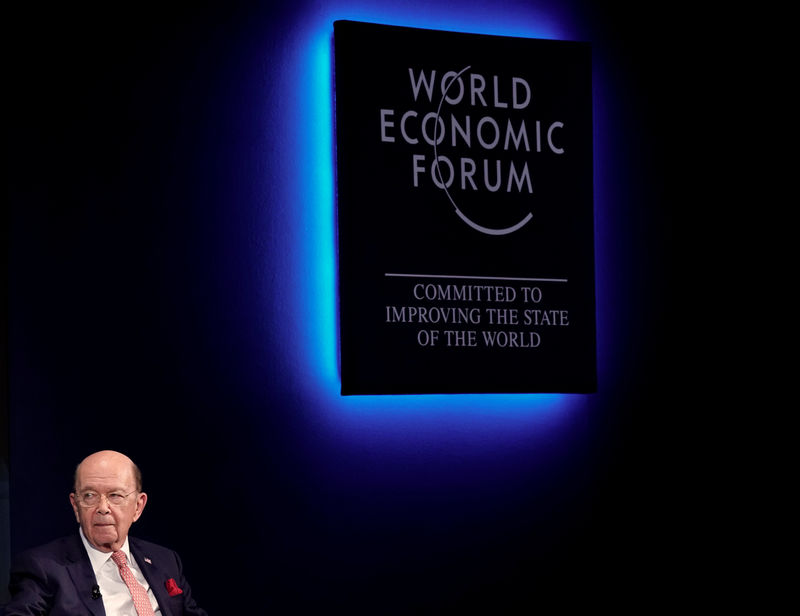 © Reuters. Wilbur L. Ross, U.S. Secretary of Commerce, attends the World Economic Forum (WEF) annual meeting in Davos
© Reuters. Wilbur L. Ross, U.S. Secretary of Commerce, attends the World Economic Forum (WEF) annual meeting in DavosBy Mark Bendeich
DAVOS, Switzerland (Reuters) – The United States is not starting a trade war but trying to level the playing field of global commerce and fend off Chinese protectionism, including a “direct threat” in high-tech goods, U.S. Commerce Secretary Wilbur Ross said on Wednesday.
Ross was speaking a day after Washington imposed steep import tariffs on washing machines and solar panels, billed as a way to protect American jobs by President Donald Trump, who is widely expected to take further action on steel, aluminum and intellectual property.
“The Chinese have been for quite a little while been superb at free trade rhetoric and even more superb at highly protectionist behavior,” Ross said.
The “next area of challenge” would be China’s high tech ambitions under its 2025 plan, which aimed to make China a world leader with enormous market share “in most all of the new technologies that you can name and spell”, Ross said.
“That is a direct threat. And it is a direct threat that is being implemented by technology transfers, by disrespect for intellectual property rights, by commercial espionage, by all kinds of very bad things. So it isn’t just the overcapacity in the historic industries.”
He said U.S. Trade Representative Robert Lighthizer was working very hard on investigating on intellectual property, but his report was not expected for some time.
Speaking at the World Economic Forum in Davos, alongside business leaders and World Trade Organization chief Roberto Azevedo, Ross played down the idea that the United States was starting a trade war or hoping to kill off the WTO.
“Nobody is trying to ignite a gigantic thing like Smoot- Hawley did during the Depression,” he said, referring to a 1930 act of Congress that raised hundreds of tariffs.
But he also gave a nonchalant response to South Korea’s vow to challenge the latest U.S. tariffs at the WTO.
“The fact that they may get a favorable decision (at the WTO) doesn’t mean that it’s a correct decision,” he said. “But in any event there’s been no decision yet so it’s a little bit too early to assume that the safeguards will be knocked out.”
Ross, who was clutching a pad with notes hand-written in blue ink, reading “NAFTA, Tax Reform, POTUS@Davos, Tariffs”, said the United States had supported the world trading system for too long without demanding reform.
But he steered away from suggestions that the United States was giving up on global trade governance, saying that the world still needed an arbiter and needed to avoid “a total free-for-all”, even if it did not agree with every aspect.
“We don’t intend to abrogate leadership but leadership is different from being a sucker and being a patsy,” he said.
Fusion Media or anyone involved with Fusion Media will not accept any liability for loss or damage as a result of reliance on the information including data, quotes, charts and buy/sell signals contained within this website. Please be fully informed regarding the risks and costs associated with trading the financial markets, it is one of the riskiest investment forms possible.
Source: Investing.com



























